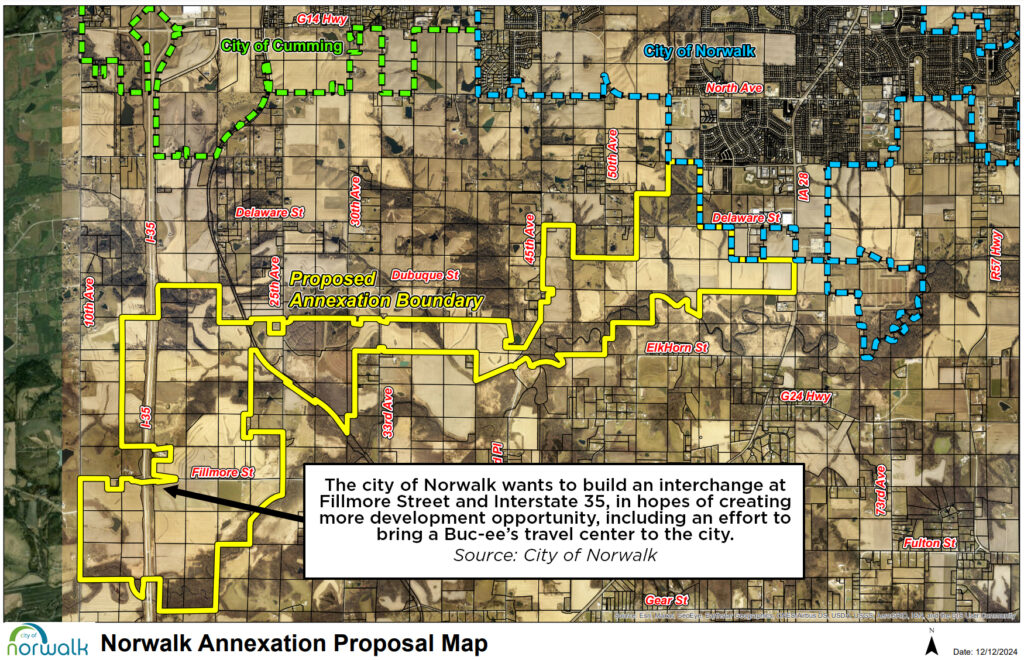Businesses ‘hunkering down’ as optimism declines, Business Council report shows

That increasing concern is causing business leaders to “hunker down” and begin putting contingencies in place to weather what are expected to be tough economic times ahead, Joe Murphy, the Business Council’s executive director, said.
The survey, released Friday during a joint presentation with Meta at the Des Moines Golf and Country Club, showed that optimism among Iowa Business Council members declined, as the index score for the third quarter fell 5.13 points to 58.75. A score above 50 indicates positive sentiment.
The report measures Iowa Business Council members’ expectations for sales, capital spending and employment for the next six months. The Business Council, a nonpartisan, nonprofit organization made up of 20 leaders from the state’s largest employers, works to elevate the state’s economy through thought leadership, research and advocacy.
Despite indicating continued positive sentiment for the state’s economy, the third-quarter score represented a third straight month of declining optimism as scores in most categories measured by the survey declined.
Sales expectations decreased 6.52 points to a score of 58.75, and capital spending expectations fell by more than 10 points to 56.25 in the third quarter. The decline in both categories shows the beginning phases of trepidation among Business Council members, the report said.
The employment index rose slightly, up 1.53 points to 61.25. Despite the increase, 95% of those responding said it was somewhat to very difficult to hire employees.
Murphy said the downward trend in optimism in recent quarters is indicative that the same concerns “continue to percolate in Iowa’s economy, among Iowa’s business owners and leaders, and it’s really taking effect on their overall sense of optimism.”
“It’s still positive, but if you look at the line charts, we’re down considerably where we’ve been from the start of the year,” he said ahead of the report’s official release.
The Business Council’s Fourth-Quarter Economic Outlook for the period ending Dec. 31, 2021, showed an overall index score of 68.86. The first-quarter report for the period ending March 30 had an overall index score of 65.78, and that dropped to 63.88 in the second quarter of this year.
“It’s not just one or two things, it’s the persistent and nagging effect of a limited workforce. It’s the supply chain pinch points that continue to cause companies a considerable amount of strife, and there’s no reason to think that’s going to improve anytime soon,” Murphy said.
He said continued high inflation is beginning to take its toll on Iowa’s economy, along with the ongoing war in Ukraine.
Murphy said the sharp decline in the index score in capital spending expectations stood out the most to him.
“That’s an indication of a company’s ability to purchase assets that can help create jobs, create opportunities and create business expansion, and the fact that they are pulling back on that over the next six month gives me some concern for six months from then,” he said. “We’re staring down a potential recession. How much will people feel that? What does it look like, the Fed’s actions on interest rates. All these things Business Council members are dealing with in a way they have not dealt with some of the pressures previously this year.”
Although it increased slightly, Murphy said the employment index score is another indication of the pressures companies are facing.
“The vast majority of our Business Council members say they plan on hiring over the next six months, or at least they want to hire more because they have products that need to be made, they have products that need to be shipped, and we continue to struggle to find employees in this very tight labor market,” he said. “We’re still about 40,000 people below where we were at the beginning of the pandemic when you look at the gross number of people in Iowa’s labor force.”
Murphy said Business Council members “are always clear-eyed on the economic realities on the ground and what we’re facing.”
“We are still optimistic, or positive, on Iowa’s future from an economic standpoint, but that being said, Business Council members and business leaders across the state remain very grounded in the reality that there are likely very concerning economic headwinds coming their direction,” he said.
Companies are beginning to “hunker down” and prepare for tough economic times ahead, Murphy said.
“They are beginning to put contingencies in place and shoring up supply lines so they can weather those economic storms,” he said.
Iowa has a history of faring tough economic times better than most other states, and Murphy said he expects that to continue.
“Our resiliency in our economy and the diversity of our businesses will hopefully continue that trend as we enter this phase of our economy,” he said.










